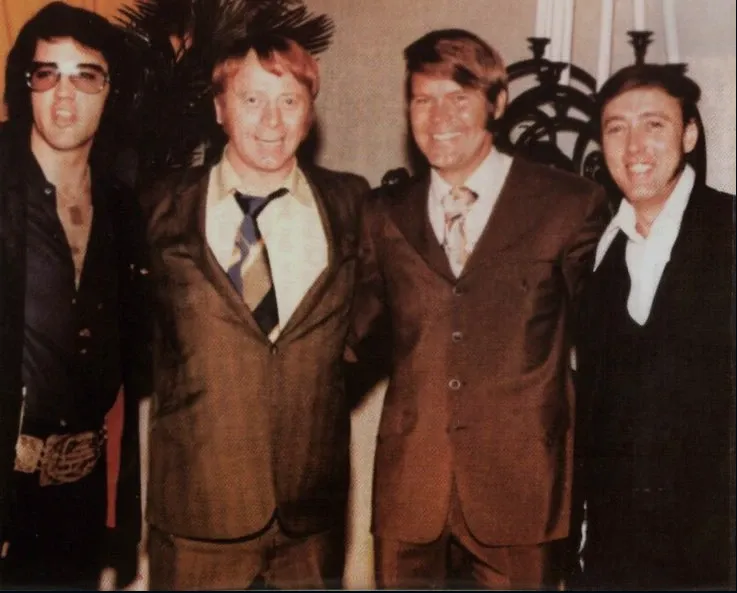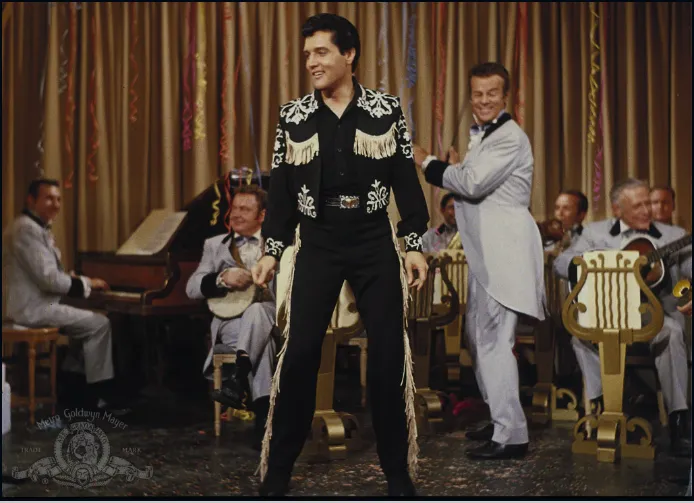The attempted sale of Elvis Presley’s famous home, Graceland, has taken a bizarre turn. As Presley’s granddaughter, actor Riley Keough, takes steps to protect the property, a new unlikely character in the story has emerged.
Earlier this month, a company called Naussany Investments & Private Lending LLC claimed they had grounds to advance with selling Graceland, stating that Presley’s daughter, Lisa Marie, borrowed $3.8 million from the company and used the property as collateral if she was unable to pay back the money.

In response, Keough, who is now the heir to the Presley estate, filed a lawsuit against the company. In the 60-page suit, she claimed, “The purported note and deed of trust are products of fraud and those individuals who were involved in the creation of such documents are believed to be guilty of the crime of forgery.” She also questioned whether the company existed at all or was a “real entity”.
On May 22nd, only a day before the proposed sale, a Tennessee judge blocked the sale by granting a temporary injunction to investigate further into Keough’s claims.
Now, in a new twist, a self-described ‘scammer’ from Nigeria has taken credit for the whole debacle. On May 29th, The New York Times reported that a man with a Naussany-associated email address had contacted them and admitted he was behind the entire failed attempt to sell the property.
The alleged perpetrator admitted to scamming the elderly and vulnerable. “We figure out how to steal,” they told The New York Times, in an email written in Uganda’s native language of Luganda, adding, “That’s what we do.”
They even admitted to taking some joy in the attempt to steal the famous property from the Presley estate. “I had fun figuring this one out and it didn’t succeed very well,” they wrote in the email, at least being humble enough to admit that the scheme didn’t work out for them.

All in all, it seems like the organised scammer simply bit off more than they could chew as they attempted to go up against the Presley estate. While it’s common for the assets of dead people to be targeted by criminals, very few deceased people have an organisation as massive as the Presley’s to protect them.
In a statement following the blocking of the sale, a spokesperson for Graceland said, “Graceland will continue to operate as it has for the past 42 years, ensuring that Elvis fans from around the world can continue to have a best in class experience when visiting his iconic home.”
Presley purchased the famous property, which would become his forever home, in 1957 while at the height of his fame and lived there until his passing in 1977. Following his death, it turned into a museum in 1982, honouring the legacy of ‘The King’ and has grown into one of the most notable tourism hubs in America with 600,000 fans making the journey to Graceland on an annual basis. With the news of the proposed sale being seemingly fraudulent, it looks like the Tennessee house will remain open for the foreseeable future.



